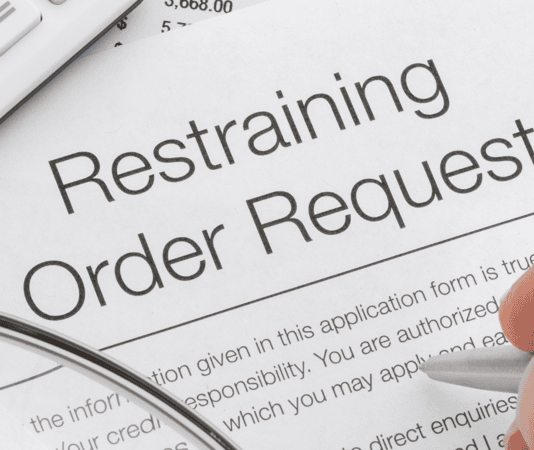I Got A Temporary Restraining Order….What Now?


Part 2 Of Our Domestic Violence Series
This blog is intended to explain what the Plaintiff (the one who got the Temporary Restraining Order) needs to do at the final hearing. However, if you are a Defendant, you will find this information helpful as well. We recommend that you first.
So you got your Temporary Restraining Order, also called a TRO. Now what?
Just by virtue of its name, it’s not permanent. It is only temporary until there is a final hearing at which time the judge will decide whether it is dismissed entirely or if it is converted into a Final Restraining Order (FRO).
What Happens at a Final Restraining Order Hearing in NJ?
So what happens at the final hearing? You (the Plaintiff) will be expected to present your case. You might think you already did that when you applied for the TRO. However, this time, the Defendant is permitted to be present and can respond to the allegations by cross-examining you, cross-examining any witnesses you may have testifying that day on your behalf, and by submitting his or her own evidence to the Court in his or her defense.
Let’s examine what you have to do.
You have to prove by a preponderance of the evidence (that means it’s more likely than not that things happened the way you say they did) that a “predicate act” occurred. A predicate act is the event (or multiple events) you allege occurred that gave rise to the Restraining Order, such as an assault or harassment. (Note that this separate from the prior history).
Even if you have alleged multiple predicate acts, you only have to prove one of them by the preponderance standard to satisfy this first requirement. Since there are so many possible predicate acts, we cannot explain in depth here how to prove all of them. However, each act is described by statute. You should refer to the applicable statute as a starting point.
Next, you will have to testify as to the “prior history” of domestic violence, if any, that you have described in the TRO. These are important because the judge has to consider the totality of the circumstances, including any history of domestic violence, to evaluate whether there is a continuing need for a Restraining Order.
If you have evidence of any of these prior acts of domestic violence, you should have it present with you in court. However, this is often difficult to demonstrate. It often results in a “he said, she said” dispute. The judge will consider the credibility of your testimony, as well as the credibility of the testimony of the Defendant, to make findings as to whether these prior events occurred.
It is important to have any objective evidence available at trial, if it exists, such as an eye witness who can testify about the events, or photographs, text messages, call logs, etc. relating to the predicate act(s) and any prior acts. Also note that if you have any police reports, these are generally considered inadmissible hearsay and will not be permitted as evidence. You will need the officer who prepared the report to testify at the hearing for you.
After you have presented your case, which includes presenting all of your evidence and your witnesses, the Defendant will have an opportunity to cross-examine you. That means he or she can ask you questions about any of the information you have testified to and any other information or events that are relevant to the proceeding.
This generally occurs in a question-and-answer format by the attorneys. (If you have seen Law & Order, then you already know how this party works, but it’s never as easy or exciting as it looks on television). If the Defendant is pro se—meaning that he or she does not have an attorney and is representing him/herself—then he or she will be asking the questions. Usually, the judge will direct the defendant to direct the questions to the court rather than address you directly.
Finally, the Defendant will have an opportunity after you are done with your case, and after he or she has finished cross-examination(s), to present his or her case in the same fashion that you just did, i.e. testimony, witnesses, etc. That also means you can cross-examine him or her (and any witnesses) as well.
Once all of these Q and A’s have been concluded, if there are attorneys, they will usually present closing arguments summing up their respective clients’ testimony and persuasively presenting it in the context of the law that is applicable to the case. Then the judge makes a decision.
If the Court finds that a predicate act occurred and that there is a need for a Restraining Order to continue in effect (this is why the prior history is relevant) then the judge will enter a Final Restraining Order. However, if the court does not find that there is either a predicate act or that there is any need for a continuing order to prevent future acts of domestic violence, the judge will dismiss the Temporary Restraining Order and it goes away completely.
Do You Need a Lawyer for a Restraining Order Hearing?
We are often asked, “Do I need an attorney to represent me for this?” Well, it’s probably similar to pulling your own tooth. You could probably do it yourself, but you won’t really know what you’re doing and it will be a lot more painful.
You can see just from this description that this is a fairly technical proceeding that does require some level of expertise and skill to be presented in the most persuasive manner possible. There are plenty of people who go to court on their own and are successful; however, there are also people that come into our office after the Temporary Restraining Order has been dismissed. By then, it’s too late. You only get one chance to do it.
We also need to emphasize that the explanation provided here is an oversimplified explanation of this process and the applicable law. We couldn’t possibly explain the entire procedure in this blog. Therefore, you should not rely upon this information in place of legal advice. At the very least, you should consult with an attorney prior to the hearing to advise you and then you can decide whether you want to hire an attorney to do the work for your or go it alone.



